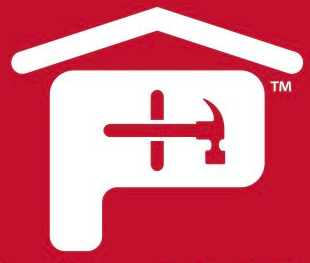The heat is on, so as the busy summer season starts, remember to practice safe roofing to prevent accidents, uphold OSHA guidelines, minimize mishaps that lead to down time, and keep yourself and your crew cool, comfortable and safe.
Killer Heat? It Happens.
In 2015, an Illinois crewmember working on an apartment complex re-roofing job died of complications related to heat stroke. After four hours on the job, the 41-year-old roofer exhibited irregular motor control and his speech became slurred. Temperatures had skyrocketed to 90 degrees, with a heat index exceeding 105 degrees. When they broke for lunch, his coworkers noticed his distress and disorientation and he was immediately transported to the hospital's emergency room, but it was too late to save him.
What went wrong? The team leader failed to practice heat illness prevention tactics, such as requiring regular hydration, as well as scheduled shade and rest breaks. Since 2011, OSHA has conducted an annual national heat awareness campaign to help prevent these tragedies. Heat-related working accidents can be prevented with education and common sense — visit OSHA's nationwide Heat Illness Prevention Campaign website to learn more and download resources to share with your crew.
We've divided our summer safety tips into sections so you can find just the advice you're looking for. Remember: Keeping the crew safe AND productive during the hot summer months is of good business sense!
Personal Tips
Never go onto a roof alone, even if you’re a seasoned roofing veteran. Always have someone with you. In the summer, rain and mildew can make roof decks extra slippery. Use a safety harness with a lanyard anchored to an anchor point. This way, even if you slip, you will not fall off of the roof. You may also want to consider a rope or cable lifeline system as backup in precarious areas.
Crew Tips
Keep your crew hydrated to avoid heat exhaustion and heat stroke. To prevent heat-related illnesses and possible death, your workers should:
- Take water breaks every 15-30 minutes
- Rest in shade or air conditioning to cool down as needed
- Wear a hat and light-colored clothing
- Know heat illness signs and symptoms
- Report symptoms early and watch out for coworkers
- Know what to do in an emergency
First-aid matters, even for small cuts and scrapes. Always have a well-stocked first-aid kit available to treat these minor injuries and prevent infections. Naturally, any injuries too severe to be treated with your first aid kit should be addressed at an ER, doctor’s office or walk-in clinic.
Use visual communication. Communicating with your crew though pre-determined visual methods can minimize potential language issues should trouble arise — and can prevent accidents and mistakes. Establish basic visual communication hand signals with your team, and practice them together to make sure you fully understand each other before your next job. In a crisis, emergency visual communications could be a lifesaver.
Equipment Tips
Use safety and fastener equipment regularly, especially after summer rains. Hard hats, knee pads, safety glasses, fasteners and wood grips will help keep you safe on the job. Investing in proper safety equipment saves time and money in the long run.
Wear proper footwear, especially when summer rains can make roof decks extra slick. Be sure to wear boots or shoes with good tread and rubber soles
Always keep ladders a minimum of 10 feet from electrical lines to avoid electrocution. Check them regularly for any defects and replace them as necessary. Never carry awkward or heavy loads up ladders.
Temperature Tips
During summer heat, be extra careful when walking on any roofing system. On some built up and modified bitumen roofs, blisters can form and swell in the daytime sun — and popping them will cause immediate leaks.
During midday summer heat, walking on coal tar bitumen roofing systems can cause damage, due to the low softening point of the bitumen. To prevent this, perform work on these types of roofs in the early morning hours before the roof heats up, or wait for cloudy and cooler days.
For more information designed to educate and inform contractors and roofing industry professionals, please visit the Atlas Roofing contractor-facing website at www.AtlasRoofing.com/pro. The Atlas collection of coordinating roofing products are manufactured exclusively for professionals for unmatched quality and lasting durability.




 Gear!
Gear! PRO LOGIN
PRO LOGIN